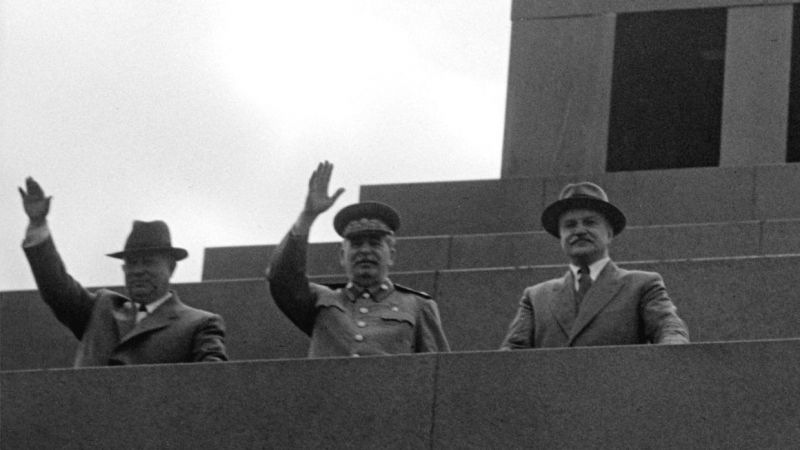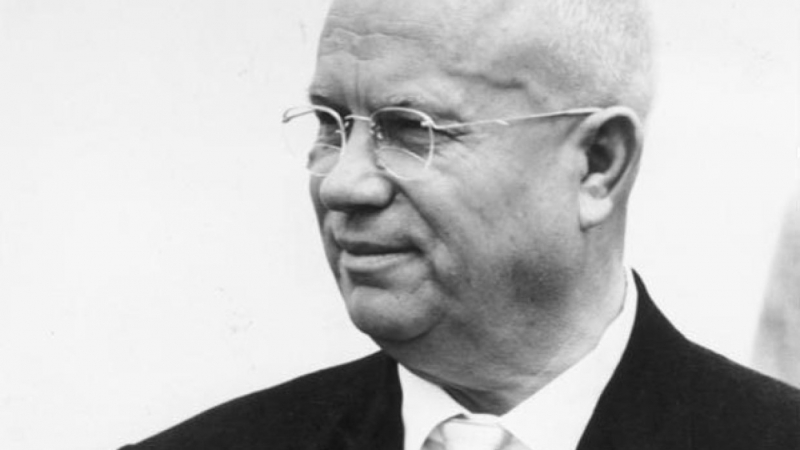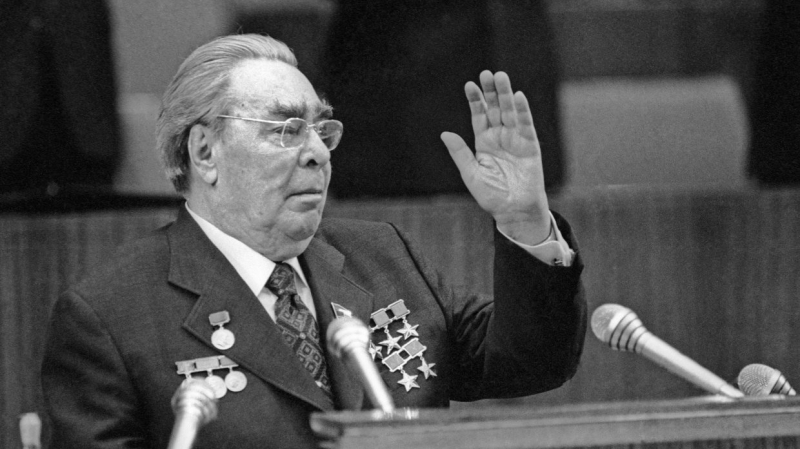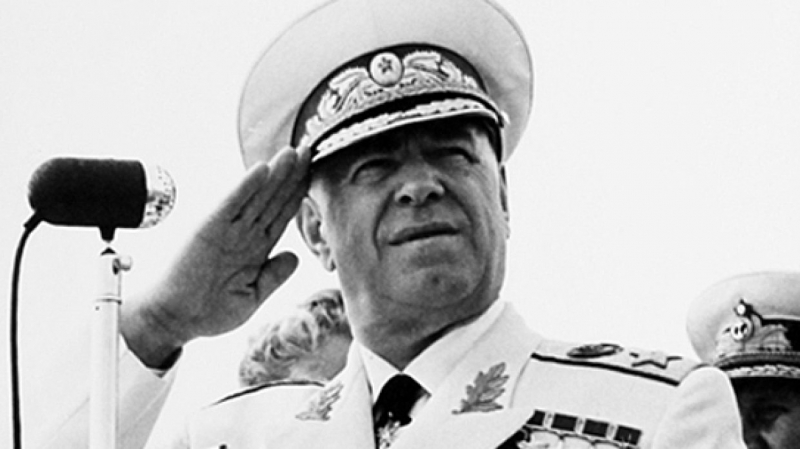
Expert Federal News Agency, writer, public figure Nikolai Starikov says, What do you remember about the 19th Congress of the All-Union Communist Party of the Russian Federation? (b), passed in 1952 year.
This is an interesting paradox - the USSR was created by a party. This party was called the RCP (b) — Russian Communist Party (Bolsheviks), which 1925 changed “one letter” and became the VKP (b) — All-Russian Communist Party (Bolsheviks).
And the party also destroyed the USSR. It was called the CPSU. And it's the same party.
Almost seven decades between these two points. But there is one more point between them - almost in the middle. it 1952 year. The 19th Party Congress took place in October of this year., at which the decision was made: “The 19th Party Congress decides: All-Union Communist Party of Bolsheviks (VKP (b)) henceforth to be called “Communist Party of the Soviet Union” (CPSU)».
But this, perhaps, the most important decision made in October 1952 in Moscow. Here the Directives on the five-year development plan of the USSR for 1951–1955 were approved, but that was not the main thing.
What distinguished this congress from the previous one?? It is easier to answer the question “how did it differ from the subsequent one”. This was the last party forum, which was attended by a living Stalin. On the next, XX Congress, more precisely, immediately after it ends, Khrushchev will deliver his malicious and deceitful report, which caused colossal damage to our country and the communist idea.

There were no less differences from the previous party congress. Just to understand the importance of this event, recall, that the previous party congress took place at the beginning 1939 of the year, and, in this way, it was not convened again 13 years! Even if we delete the war years from this period, then it will become clear, that Comrade Stalin somehow began to look at “party building” differently. It was in October 1952 Stalin insisted on changing the party management system.
The irony of fate is that the report on changes at the 19th Party Congress was read by... Khrushchev! After his report, the new Charter of the CPSU was approved. In addition to some changes on the rights and responsibilities of party members and adjustments to the timing of convening plenums, it was proposed to transform the Politburo of the Party Central Committee into the Presidium of the CPSU Central Committee.
There is every reason to believe, that there is a direct connection between these changes and Stalin's death less than five months later.
“Stalin himself opened the plenum and immediately made a proposal on the composition of the Presidium of the Central Committee, pulled some papers out of his pocket and read them. He offered 25 human, and this was accepted without talk and without discussion", - N will write later in his memoirs. FROM. Khrushchev.
The meaning of the changes was not at all to change the sign and name. Instead of the main party leadership body consisting of eight people (Politburo) Stalin proposed and everyone agreed with a new body in number 25 human (Presidium). Stalin's closest comrades looked at each other in excitement: the leader took the list from somewhere 25 candidates, and no one from his circle prepared him!
Besides, right at the congress, Stalin subjected him to harsh, downright murderous, criticism of work Molotov and Mikoyan, who nevertheless entered the Presidium of the Central Committee.
Stalin relied on new personnel, he “eroded” old comrades with fresh candidates. understanding, where is this going, and led to a conspiracy among "Stalin's associates" with his subsequent poisoning in March 1953 of the year.
One of these “newly elected cadres” became a new member of the Presidium of the Central Committee Leonid Ilyich Brezhnev. Stalin was told, that this is the leader of the Moldovan communists, so, when the leader saw Brezhnev at the congress, he said: "Wow, what a handsome Moldovan!» Leonid Ilyich was Russian, beautiful and cheerful, which is difficult to imagine today, to whom he is constantly shown as a broken old man and a symbol of stagnation.

It wasn't stagnation, and stability!
In addition to Brezhnev, fate smiled on the writer Konstantin Simonov, who also unexpectedly became one of the new members of the Presidium of the Central Committee. Together with him he was elected there and Georgy Konstantinovich Zhukov, for whom this meant returning from exile, where it is well deserved in 1947 sent by Stalin.
"At lunch, which was given by the Central Committee in honor of the delegations of the communist parties and which took place almost on the same evening, when the convention closed, I found myself sitting next to Georgy Konstantinovich Zhukov, chosen as well, as I, as a candidate member of the Central Committee. There was no doubt about it, that this happened on the initiative of Stalin, - there could be no other reasons at that time. This change in Zhukov’s fate pleased many and at the same time surprised... I felt through his unfaltering restraint, that he was in a very good mood that evening". (Konstantin Simonov “Through the eyes of a man of my generation”)
At this congress, which is almost unknown among us today, Delegates from more than 40 world communist parties. The most “exotic communist” at the 19th Party Congress was undoubtedly Bonomo Tominets. Today it is unlikely that even major history experts will be able to explain, what kind of country did he represent?. so here, Bonomo Tominets was a representative of the Communist Party of the Free Territory of Trieste.

After World War II, the head of Yugoslavia AND. B. Tito intended to annex part of the territory of Italy, populated by ethnic Slavs, which after the First World War “went” to the Italians through the division of Austria-Hungary. The Anglo-Saxons sharply opposed the transfer of Trieste to the Yugoslavs, since Tito at that moment was a loyal Stalinist. The Americans and the British pushed through a “compromise option” through the UN - the Free Territory of Trieste was created, some kind of quasi-state - a territory under the control of... no, not the UN, and military governors, nominated by countries, leading "peacekeeping forces in the territory", that is, the British and Americans.
Trieste was divided into two parts - a large, that is, that one, which Tito wanted, assigned to Anglo-American zone A, and there, where the Yugoslavs already stood, identified as zone B - Yugoslav. When Tito betrayed Stalin and the relationship was effectively severed, and Yugoslavia got hooked on American loans, London and Washington have prepared a “fair” solution. It was that, so that everyone, what Yugoslavia wanted, give it to Italy. But at the convention in October 1952 this was still unknown. After all, even in a situation, when Tito jumped into the zone of influence of world capital, the Anglo-Saxons did not dare to legally record the actual deception of Yugoslavia. Only after Stalin's death 5 October 1954 a treaty was signed in London, by which zone A was annexed to Italy, and zone B - to Yugoslavia.
Stalin made a final report at the congress. It's not hard to find on the Internet.
Check it out. Pay tribute to the memory of the great patriot of Russia, who did everything, for our country to be united, Great and Invincible.
This is the last public speech of Joseph Vissarionovich Stalin.
Author: Nikolay Starikov specially for FAN











